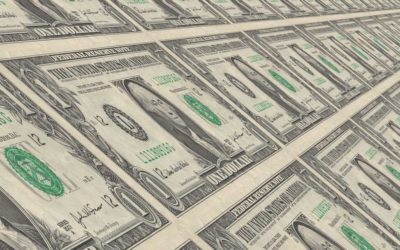Greg Palast is a great investigative journalist who I really admire. He has a new article out in The Nation where he writes:
Mitt Romney’s opposition to the auto bailout has haunted him on the campaign trail, especially in Rust Belt states like Ohio. There, in September, the Obama campaign launched television ads blasting Romney’s November 2008 New York Times op-ed, “Let Detroit Go Bankrupt.” But Romney has done a good job of concealing, until now, the fact that he and his wife, Ann, personally gained at least $15.3 million from the bailout—and a few of Romney’s most important Wall Street donors made more than $4 billion. Their gains, and the Romneys’, were astronomical—more than 3,000 percent on their investment.
What I like about this article is how it shows Romney’s hypocrisy, as well as the additional details it reveals about the auto industry bailout. What I don’t like about it is that it focuses on blaming individuals who profited from the bailout while at the same time defending the government practice of plundering money from taxpayers to hand out to preferred sectors of the economy. I’ll briefly boil down the story:
It all starts with Delphi Automotive, a former General Motors subsidiary whose auto parts remain essential to GM’s production lines. No bailout of GM—or Chrysler, for that matter—could have been successful without saving Delphi. So, in addition to making massive loans to automakers in 2009, the federal government sent, directly or indirectly, more than $12.9 billion to Delphi—and to the hedge funds that had gained control over it….
…Mitt chased Singer with his own checkbook, investing at least $1 million with Elliott through Ann Romney’s blind trust (it could be far more, but the Romneys have declined to disclose exactly how much)….
Delphi, once the Delco unit of General Motors, was spun off into a separate company in 1999. Alone, Delphi foundered, declaring bankruptcy in 2005, after which vulture hedge funds, led by Silver Point Capital, began to buy up the company’s old debt….
As Delphi was in bankruptcy, making few payments, the bonds were junk, considered toxic by the banks holding them. The hedge funds were able to pick up the securities for a song; most of Elliott’s purchases cost just 20 cents on the dollar of their face value.
By the end of June 2009, with the bailout negotiations in full swing, the hedge funds, under Singer’s lead, used their bonds to buy up a controlling interest in Delphi’s stock. According to SEC filings, they paid, on average, an equivalent of only 67 cents per share.
Just two years later, in November 2011, the Singer syndicate took Delphi public at $22 a share, turning an eye-popping profit of more than 3,000 percent. Singer’s fund investors scored a gain of $904 million, all courtesy of the US taxpayer….
Yet without taking billions in taxpayer bailout funds—and slashing worker pensions—the hedge funds’ investment in Delphi would not have been worth a single dollar, according to calculations by GM and the US Treasury….
Altogether, in direct and indirect payouts, the government padded these investors’ profits handsomely. The Treasury allowed GM to give Delphi at least $2.8 billion of funds from the Troubled Asset Relief Program (TARP) to keep Delphi in business. GM also forgave $2.5 billion in debt owed to it by Delphi, and $2 billion due from Singer and company upon Delphi’s exit from Chapter 11 bankruptcy. The money GM forgave was effectively owed to the Treasury, which had by then become the majority owner of GM as a result of the bailout. Then there was the big one: the government’s Pension Benefit Guaranty Corporation took over paying all of Delphi’s retiree pensions. The cost to the taxpayer: $5.6 billion. The bottom line: the hedge funds’ paydays were made possible by a generous donation of $12.9 billion from US taxpayers.
Notice that Palast’s criticisms are directed at those who profited from the bailouts, not the bailout itself. That he is not actually criticizing the bailout becomes even more evident as you continue reading, where he praises the bailout as an “important” effort to save “auto industry jobs.” He characterizes Delphi as extorting GM and the Treasury:
He writes that Delphi, now in the possession of its hedge fund creditors, told the Treasury and GM to hand over $350 million immediately, “because if you don’t, we’ll shut you down.” His explanation was corroborated by Delphi’s chief financial officer, John Sheehan, who said in a sworn deposition in July 2009 that the hedge fund debt holders backed up their threat with “an analysis of the cost to GM if Delphi were unwilling or unable to provide supply to GM,” forcing a “shutdown.” … If Delphi laid siege to GM’s parts supply, the bailout would fail and GM would have to be liquidated or sold off—as would another Delphi dependent, Chrysler.
It may be a fair characterization, but, remember, Delphi was going through bankruptcy, too. It didn’t exactly have a lot of leverage. It is not as though Delphi was just saying, give us the money, or else. It may be that Delphi was simply saying, look, we need such and such an amount of money to stay in business, so if you don’t invest this much in us, we won’t be able to provide you with the parts, because we’re insolvent, too. And it’s not as if Delhi was saying, look, hand over the money or we’ll go to Japan and sell all these parts built for GM and Chrysler vehicles to Mitsubishi. So as I’m reading this, I can’t help but feel that the criticism is misplaced. That feeling seems confirmed in the next paragraph, where Palast writes:
Romney has slammed the bailout as a payoff to the auto workers union. But that certainly wasn’t true for the bailout of Delphi. Once the hedge funders, including Singer—a deep-pocketed right-wing donor and activist who serves as chair of the conservative, anti-union Manhattan Institute—took control of the firm, they rid Delphi of every single one of its 25,200 unionized workers.
Again, the criticism is of Delphi here, rather than of the government for bailing Delphi out. Not only is there no criticism of the bailout itself, but Palast is effectively defending it by criticizing Romney’s criticism of it. I’m not very knowledgeable about the details of the bailout, but my intuition told me something was wrong here, so I did a Google search and quickly found this:
President Obama touts the bailout of General Motors and Chrysler as one of the signature successes of his administration. He argues that the estimated $23 billion the taxpayers lost was worth paying to avoid massive job losses. However, our research finds that the president could have both kept the auto makers running and avoided losing money.
The preferential treatment given to the United Auto Workers accounts for the American taxpayers’ entire losses from the bailout. Had the UAW received normal treatment in standard bankruptcy proceedings, the Treasury would have recouped its entire investment. Three irregularities in the bankruptcy case resulted in a windfall to the UAW….
Finally, GM’s decision to assume certain pension obligations of Delphi, the bankrupt former GM subsidiary, also increased the cost of the bailout. New GM no longer had an obligation to support Delphi’s pensions. Yet it decided to spend $1 billion to top up the pensions of Delphi’s UAW [United Auto Workers] retirees. Delphi’s nonunion retirees and retirees in other unions did not fare so well. GM gave them nothing.
So, to review, Romney criticized the bailout as being “a payoff to the auto workers union”. Palast writes that that “certainly wasn’t true for the bailout of Delphi”. And yet we see that it was true, because the government used taxpayers’ money preferentially to favor UAW while sticking it to nonunion retirees or pensioners belonging to other unions.
Obama often talks about “leveling the playing field”. So you see what he means by that. Where is Palast’s criticism of the Obama administration? Why does he try to defend the bailout? I don’t think he intended to mislead readers. I think he’s a very honest reporter, and my opinion of him is he is a person of great integrity. I respect him a lot. But it seems to me that his own ideology—liberal, progressive, whatever you want to call it—is blinding him quite a lot in the way he reports this story, as clearly evident here.
And if there is any doubt that Palast is defending the bailout itself, it is laid to rest if you keep reading, as he goes into a discussion about how the bailout could have been handled differently. So there is a minor criticism of the bailout in that discussion about how it was done, but the assumption remains that it is good for the government to steal wealth from one group of people and transfer it to another.
His ideology, evident in the assumptions he makes in this piece, unfortunately leads Palast to defend the one player in all of this that is most worthy of his criticism, the most corrupt plunderer of all: the U.S. government.


